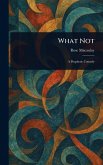Yevgeny Zamyatin's "We" is a foundational work of dystopian fiction, exploring the chilling potential of a seemingly perfect, yet ultimately oppressive, utopian society. As a cornerstone of Russian literature and a precursor to later classics in the genre, "We" offers a stark warning against the dangers of totalitarianism and the suppression of individual identity. Through a lens of early science fiction, Zamyatin constructs a world where citizens are known only by numbers, and every aspect of life is meticulously planned and controlled by the all-powerful Benefactor. This exploration of a mathematically precise and regimented society questions the true cost of happiness and security, forcing readers to confront the unsettling possibility of a world devoid of freedom and personal expression. "We" remains a powerful and relevant examination of power, control, and the enduring human spirit's yearning for individuality, cementing its place as a critical work for anyone interested in the history and evolution of dystopian and science fiction narratives. This work has been selected by scholars as being culturally important, and is part of the knowledge base of civilization as we know it. This work is in the public domain in the United States of America, and possibly other nations. Within the United States, you may freely copy and distribute this work, as no entity (individual or corporate) has a copyright on the body of the work. Scholars believe, and we concur, that this work is important enough to be preserved, reproduced, and made generally available to the public. We appreciate your support of the preservation process, and thank you for being an important part of keeping this knowledge alive and relevant.
Bitte wählen Sie Ihr Anliegen aus.
Rechnungen
Retourenschein anfordern
Bestellstatus
Storno









